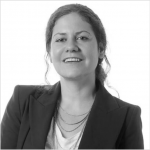Ecological And Feminist Macroeconomics
12-16 July 2021
Extended registration deadline: 6 July 2021 at 23:59 CEST
This research-oriented course is thought of for students and researchers with a background in economics. However, any participant interested to learn about ecological and feminist (macro)economics is welcome. This means that people from any background are welcome, even if they don’t have previous formal training in economics. Classes will be conducted in English only. The sessions will be recorded and made available to participants, ideally on the same day. Therefore, in case you cannot attend the classes synchronically for any reason (e.g. time difference, or other overlapping commitments), you will be able to watch them later on at your convenience. Participation in the students’ workgroup is optional.
This course is an official event of the conference “Building Alternative Livelihoods in times of ecological and political crisis” (University of Manchester, 5-8 July 2021) organized by the international degrowth research networks, the International Society for Ecological Economics, and the European Society for Ecological Economics.





Giorgos Kallis is an ecological economist, political ecologist, and Catalan Institution for Research and Advanced Studies (ICREA) Professor at the Institute of Environmental Science and Technology, Barcelona. He is the coordinator of the European Network of Political Ecology, and author of four books on Degrowth. His latest ones are “Limits” published by Stanford University Press (2019), and “The case for degrowth” by Polity Press (2020). His research is motivated by a quest to cross conceptual divides between the social and the natural domains, with particular focus on the political-economic roots of environmental degradation and its uneven distribution along lines of power, income, and class. His current work focusses on the hypothesis of degrowth and how we can move to a society that prospers without growth. He was previously a Marie Curie Fellow at the Energy and Resources group at UC Berkeley, and he holds a PhD in Environmental Policy from the University of the Aegean, an MSc in Economics from Universitat Pompeu Fabra, and an MSc in Environmental Engineering and a Bachelors in Chemistry from Imperial College, London.
Mary Mellor is Emeritus Professor at Northumbria University, where she was founding Chair of the University’s Sustainable Cities Research Institute. She has published extensively on alternative economics integrating socialist, feminist, and green perspectives. She is a founding member of the newly formed World Economics Association and is on the editorial board of several journals. Her books include Feminism and Ecology, The Future of Money: From Financial Crisis to Public Resource, and Debt or Democracy? Public Money for Sustainability and Social Justice. Her most recent book is Money: myths, truths and alternatives (Policy Press 2019). She holds a PhD from Newcastle University.